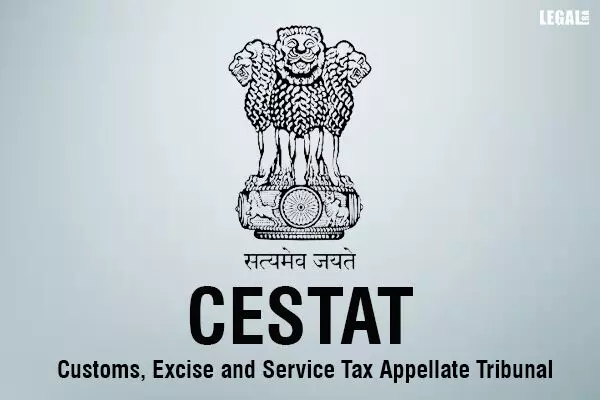- Home
- News
- Articles+
- Aerospace
- Agriculture
- Alternate Dispute Resolution
- Banking and Finance
- Bankruptcy
- Book Review
- Bribery & Corruption
- Commercial Litigation
- Competition Law
- Conference Reports
- Consumer Products
- Contract
- Corporate Governance
- Corporate Law
- Covid-19
- Cryptocurrency
- Cybersecurity
- Data Protection
- Defence
- Digital Economy
- E-commerce
- Employment Law
- Energy and Natural Resources
- Entertainment and Sports Law
- Environmental Law
- FDI
- Food and Beverage
- Health Care
- IBC Diaries
- Insurance Law
- Intellectual Property
- International Law
- Know the Law
- Labour Laws
- Litigation
- Litigation Funding
- Manufacturing
- Mergers & Acquisitions
- NFTs
- Privacy
- Private Equity
- Project Finance
- Real Estate
- Risk and Compliance
- Technology Media and Telecom
- Tributes
- Zoom In
- Take On Board
- In Focus
- Law & Policy and Regulation
- IP & Tech Era
- Viewpoint
- Arbitration & Mediation
- Tax
- Student Corner
- AI
- ESG
- Gaming
- Inclusion & Diversity
- Law Firms
- In-House
- Rankings
- E-Magazine
- Legal Era TV
- Events
- News
- Articles
- Aerospace
- Agriculture
- Alternate Dispute Resolution
- Banking and Finance
- Bankruptcy
- Book Review
- Bribery & Corruption
- Commercial Litigation
- Competition Law
- Conference Reports
- Consumer Products
- Contract
- Corporate Governance
- Corporate Law
- Covid-19
- Cryptocurrency
- Cybersecurity
- Data Protection
- Defence
- Digital Economy
- E-commerce
- Employment Law
- Energy and Natural Resources
- Entertainment and Sports Law
- Environmental Law
- FDI
- Food and Beverage
- Health Care
- IBC Diaries
- Insurance Law
- Intellectual Property
- International Law
- Know the Law
- Labour Laws
- Litigation
- Litigation Funding
- Manufacturing
- Mergers & Acquisitions
- NFTs
- Privacy
- Private Equity
- Project Finance
- Real Estate
- Risk and Compliance
- Technology Media and Telecom
- Tributes
- Zoom In
- Take On Board
- In Focus
- Law & Policy and Regulation
- IP & Tech Era
- Viewpoint
- Arbitration & Mediation
- Tax
- Student Corner
- AI
- ESG
- Gaming
- Inclusion & Diversity
- Law Firms
- In-House
- Rankings
- E-Magazine
- Legal Era TV
- Events
CESTAT Reiterates: IPRs Covered Under Indian Law at Present Alone are Chargeable to Service Tax

CESTAT Reiterates: IPRs Covered Under Indian Law at Present Alone are Chargeable to Service Tax
The Chennai bench of Customs, Excise and Service Tax Appellate Tribunal (CESTAT) while adjudicating an appeal filed in the matter of M/s. LifeCell International Private Ltd. vs. The Commissioner of Central Excise and Service Tax held that the payment of royalty for Intellectual Property Rights services was not liable to tax in India in the present case, as, IPRs covered under Indian Law in force at present alone are chargeable to service tax.
In the present case, LifeCell International Private Limited (Appellant) claimed to be engaged in the process of separation, isolation, storage and cryo-preservation of Umbilical Cord and Stem Cells, had entered into an agreement with M/s. Cryo-Cell International Inc., USA under ‘Licence and Royalty Agreement’ for the use of ‘Licensed Technology’ and the appellant had to pay the royalty, as per the terms of the above agreement, to M/s. Cryo-Cell International Inc. (M/s. CCI), USA. Pursuant to this, show cause notice was issued to demand service tax on the royalty payments made by the appellant.
The question that came up for consideration before the CESTAT was whether the Revenue was justified in demanding Service Tax on the royalty paid to M/s. CCI?
The division member bench of P. Dinesha (Judicial Member) and Vasa Seshagiri Rao (Technical Member) placed reliance on the decision passed in the case of M/s. Asia Cryo Cell Pvt. Ltd. vs. C.C.E. & S.T. (2017), wherein the Tribunal observed that “to be held liable for service tax on reverse charge basis under IPR service, such IPR should be recognized by any law for the time being in force in India… Registration is not a requirement.”
Following the above ratio decidendi, the bench was of the view that demand raised for Service Tax was not correct. Accordingly, the CESTAT allowed the appeals.



